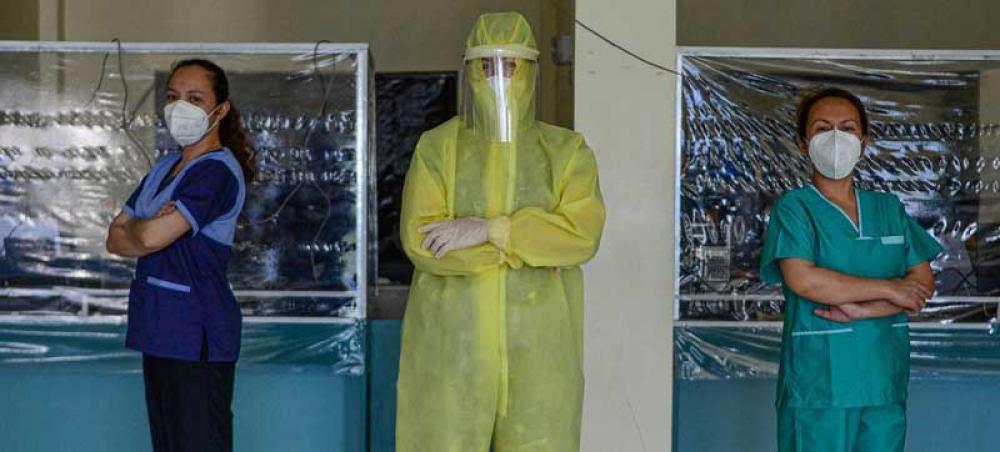Just Earth News | @justearthnews | 27 Dec 2022, 09:54 pm Print
 Epidemic
Epidemic UN Women/Louie Pacardo
New York: Three years ago this month, the virus that causes COVID-19 was first detected, the UN chief reminded on Tuesday, the International Day of Epidemic Preparedness.
“The costs have been catastrophic”, Secretary-General António Guterres said in a statement marking the day.
Since the pandemic struck, he pointed out that millions of lives have been lost, as hundreds of millions fallen ill.
And economies have been shattered, health systems stretched, and trillions of dollars lost.
Moreover, progress towards the Sustainable Development Goals (SDGs) has been “thrown off track”, the top UN official argued.
“Developing countries were often left to fend for themselves, shamefully denied the vaccines, tests or treatments they needed to protect their people”, he lamented.
Heed the ‘harsh lessons’
COVID-19 will not be the last epidemic or pandemic humanity faces, he warned.
“As a global community, we must heed the harsh lessons of COVID-19 and make bold investments in pandemic preparedness, prevention and response”, spelled out the UN chief.
He underscored the need for better surveillance “to detect and monitor viruses with epidemic potential”; resilient health systems supported by universal health coverage; and a “well-trained, well-equipped and well-paid” health workforces.
“We also need equitable access to vaccines, treatments, diagnostics and life-saving technology for all countries”, Mr. Guterres added.
A global fight
He highlighted the need to “fight the scourge” of misinformation and pseudoscience with “science and fact-based information”, reminding that a pandemic cannot be fought country by country.
“The world must come together. COVID-19 was a wake-up call”, the Secretary-General stated.
“On this International Day of Epidemic Preparedness, I urge all countries to stand with our efforts to ensure the world is equipped and ready to take on the health challenges to come”.
Integrated approach
The UN also recalled the value of a One Health approach, which fosters the integration of human, animal and plant health, as well as environmental and other relevant sectors.
International cooperation and multilateralism play an important role in responding to epidemics.
Partnership and solidarity among every individual, community, State, and region, in all stages of epidemic management, are significant.
UN’s role
The UN system, particularly the World Health Organization, plays a pivotal role in coordinating and supporting national, regional and international efforts responding to epidemics as well as in in preventing, mitigating and addressing the impacts of infectious diseases and epidemic – with the goal of advancing the 2030 Agenda.
However, the primary role and responsibility lies with Governments and relevant stakeholders in tackling global health challenges, especially women, who make up the majority of the world’s health workers.
UN Member States have committed to ensure inclusive, equal and non-discriminatory participation, with special attention to those, who are vulnerable or in vulnerable situations with the highest chance of epidemic infection.
- Global obesity crisis deepens: One in five kids now overweight, study highlights
- Alarming projection: Global breast cancer cases could cross 3.5 million by 2050, shows study
- Exam stress to emotional distress: Study reveals the dark side of academic pressure
- Vegetarian diet linked to lower risk of five major cancers, study finds
- Ukraine’s health system under fire: Attacks spike 20% in 2025, WHO warns





-1763561110.jpg)
